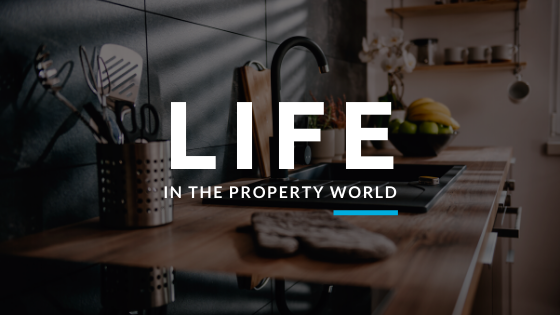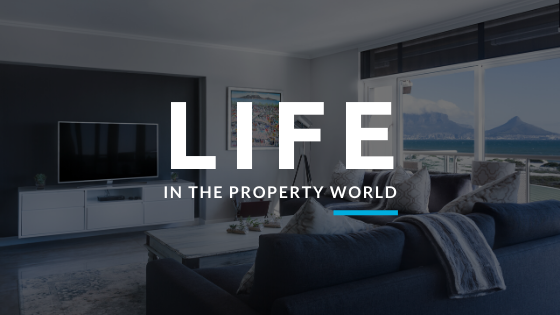|
Whether you are retiring, looking to free up some capital, or simply wanting to de-clutter, downsizing in Whangarei can offer some real advantages – but it also comes with some downsides. We weigh up the pros and cons of making this lifestyle change.
PRO: A smaller home means smaller bills If you are looking to save on daily living costs, downsizing into an apartment or smaller home usually means you will save on basics such as heating costs, electricity, and house insurance. CON: A downsized home may mean downsized furniture Moving into a smaller space could cost you some extra money if your furnishings are too big for your new home, and you have to spend on new items such as lounge suites, dining tables and bedroom furniture. PRO: De-cluttering is the only option If you (or others in your household) struggle to get rid of clutter, downsizing provides the perfect reason to get tough and minimise. Especially if you are moving into an apartment or unit, storage space will be at a premium, so only the most important possessions should go with you. CON: Outdoor space and hobbies may be affected For those who love gardening or lounging around the backyard during the summer months, downsizing can be challenging. However, many people cultivate impressive gardens on apartment balconies, and if this is something that is important to you, look for a home that fits the bill in terms of sunlight and space. PRO: Less household maintenance Alternatively, if you can’t wait to retire the lawnmower and hedge clippers, downsizing is a great option. Indoor chores such as vacuuming, dusting and cleaning will also be quicker and easier in a smaller home, freeing up your time for other activities. CON: Lifestyle changes may be hard to adjust to Moving from a self-contained family home to a unit or apartment, or even just a smaller home in a different neighbourhood, can present some major changes. You may not be able to have family or friends to stay over, hosting large events may be difficult, and new neighbours in closer proximity could prove challenging. PRO: Release your capital Many of us have the majority of our savings tied up in our primary property. Downsizing can offer the opportunity to free up money that can then be used to diversify investments, take a dream holiday, or simply provide more cash flow for daily living. Get in touch with us to talk it all over, we’d love to help you think about downsizing in Whangarei, or not... I’m here to help. So if you’re thinking of selling your Whangarei home, I have a real passion for selling Real Estate, as well as marketing & coffee! I’d love to share my expertise! Any time - 021 606 460 or [email protected] Cheers, Paul
0 Comments
Many of us have an idea for a potential add-on or major renovation for our home, but we don’t always get around to doing it. So, when it comes time to sell, is it worth getting the plans and/or consent ready to show potential buyers?
Prepping the plans If you never got around to adding that extra bedroom, en-suite, double garage or sleep-out, and now it’s time to sell, there could still be benefits to doing some paperwork to help make your property more attractive to buyers. However, before you do anything, it’s important to think carefully about what these might add to your listing and whether it’s worth the effort. If the project needs building or resource consent, then it will take time and money (time frames and costs vary between councils), and the same goes for any architect plans you might get drawn up. When weighing up the options, it is essential to consider whether the renovation will appeal to a likely buyer. If it’s an extra bedroom or bathroom, and your home will be popular with young families, the answer might be a resounding yes, and the paperwork already being done could be a real bonus for buyers. However, if the plans are for your dream triple garage that will take up most of the section, then it may not appeal to those same buyers looking for outdoor space. Plans and consent could equally add value if they address a negative feature of the house – for example, the lack of an outdoor deck – by showing buyers that the addition can be done and allowing them to cross that particular ‘black mark’ off their list. Having these things in place will only appeal to some buyers though, and the time, cost and energy of securing consents and plans may not add anything for the majority of people who don’t wish to do the work, want to come up with their own ideas, or are happy with the property as is. Doing the work If the renovation or add-on is really going to add value by making the property more attractive, remedying a very negative feature, or adding a potential income stream, then it could be a better idea to simply forge ahead with the work before you put the house on the market, and potentially reap the rewards in your sale price. However, it’s important to discuss such plans beforehand with a reputable real estate agent who can advise on whether it will pay off in the long run, and crucial that you keep the build costs within set limits to ensure you make the best possible profit out of any extra work that you take on before deciding to sell. Get in touch with me, I've lived through a reno (or two!) and can share the ins and outs with you. I’m here to help. So if you’re thinking of selling your Whangarei home, I have a real passion for selling Real Estate, as well as marketing & coffee! I’d love to share my expertise! Any time - 021 606 460 or [email protected] Cheers, Paul Buying, selling, moving and renovating are all major life events, and it’s important you are covered by insurance every step of the way. Here’s how you can best manage insurance requirements so you aren’t caught short.
When purchasing a house It’s best to contact insurance companies to arrange house insurance ahead of time as they may need extra information such as building reports, and if it’s an older home, details of re-piling, re-wiring and new plumbing. If you can’t secure insurance before putting in an offer, then consider inserting a ‘subject to insurance’ clause into the sale and purchase agreement so you have time to confirm before it goes unconditional. Take the time to understand the different types of insurance available to you – in New Zealand you can get total replacement, sum specified, and present day value policies. See the Insurance Council of New Zealand website for more information – www.icnz.org.nz. When selling a house If you are after a quick settlement, provide as much accurate information about your home’s build and history to your real estate agent as possible to allow purchasers to organise insurance ahead of signing on the dotted line. You will need to advise your insurance company of the sale, and provide details to them of the settlement date. You’ll also need to continue covering the property with your insurance until settlement, even if you have vacated the house – if something were to happen on the day before the keys are handed over, the costs would fall to you. When moving house Many contents insurance policies do not cover your household items when they are in transit, so check with your insurance company if your policy does and, if not, whether they can offer extra insurance for the move. If you are using a professional moving company, most offer an insurance from the time they pack up your contents to delivery at your new home – something well worth considering in case of the unexpected happening en-route. When renovating If you are considering any major structural changes to your house, then taking out contract works insurance is recommended to cover any potential damage caused during the renovation. Renovations such as replacing the roof, re-piling or redoing the kitchen can all be covered by such a policy. However, be aware there are some exclusions within the policy, including faulty workmanship, so you need to ensure you have reputable professionals carrying out any work it covers. Get in touch with me to talk it all over, I’ve got a list of professionals to get you sorted, and I'm here to help you every step of the way. Any time - 021 606 460 or [email protected] Cheers, Paul The decision to sell is made, but how do you ensure potential buyers know your house could be their dream home? Here are five top marketing tools to help you get the best possible result for your sale.
Online presence More than 80 per cent of Kiwis look online first to find properties for sale, so it’s essential your property has a presence online. Working with us, you’ll get featured on NZ’s most visited Real Estate site, Harcourts, plus of course a listing on TradeMe and all the other popular real estate portals. But, it doesn’t stop there! We also have our own website where we can highlight your home with its own feature page. Then there is the Social Media side of things to consider. Any agent that is not able to talk you through a comprehensive online plan that covers all aspects of promoting your home, is maybe not going to do the best job for you. In 2019, it is all about maximising your properties exposure online, and we are experts at that. Great images and video Make sure your home looks pretty as a picture to attract the maximum number of buyers to come and view it in person. The first encounter many will have with your property is by viewing your property video and photographs online, in real estate magazines or agency windows, or in the property section of the local paper, so it is crucial they make a good first impression. It is worth paying for a professional photographer who can ensure images are taken from the right angle, get the lighting right and show your home at its very best, as those pictures and video, if may just prompt a future buyer to fall in love. With over 5 Billion (yep!) videos watched on YouTube every single day, a property video is fast becoming a necessary part of a property marketing campaign. Street signage A ‘For Sale’ sign outside your home may feel a little old-fashioned in our evolving digital world, but it’s important to catch the attention of those Whanagrei locals who may not actively be looking for a new property, or those who always have an eye on your street or neighbourhood for their dream home. People hunting for property use up to four extra resources on top of online research, including sale signage, magazines and brochures, and agency window displays, so the more places you shout ‘For Sale’, the better. Open homes The actual look and feel of a property is something that can’t be construed through photos alone, so holding open homes and private viewings is a key strategy in the marketing of your property. Giving prospective buyers the chance to walk through your home, imagine themselves in it, and get a feel for the surrounding neighbourhood will ensure you have some serious buyers in the mix when it comes time to sell. A great agent Word of mouth and personal recommendations count for a lot when it comes to making a major purchase such as a new home. A committed and enthusiastic real estate agent will be able to tell people about your property, put the word out to other agents who might have interested buyers, and follow up with potential buyers about their intentions. An approach like this will make sure you have reached as many people as possible, and make you feel secure that, in turn, you get the best price possible. Get in touch with me to talk it all over, I’d love to help you get the best result with the sale of your house. I’m here to help. So if you’re thinking of selling your Whangarei home, I have a real passion for selling Real Estate, as well as marketing & coffee! I’d love to share my expertise! Any time - 021 606 460 or [email protected] Cheers, Paul |
AuthorHelpful and interesting info from Paul & Harcourts to help you with your property journey. Archives
October 2023
Categories |
HoursAlways here for you
|
Telephone+6421 606460
|
|
We respect your inbox. We only send interesting and relevant emails.
Privacy PolicyREAA GuidesREINZ Info |
Optimize Realty Limited, Licensed Agent REAA 2008





 RSS Feed
RSS Feed
